Paul Kim and his congregation prayed for a place to meet. Romney Santos asked why God called him to start a church in the Dallas-Fort Worth area. Joel Santiago came to Plano in faith, “like Abram leaving Haran and going to Canaan.” Jalil Dawood fled his birthplace years ago to be free of persecution. Over the span of a few years, their separate paths converged at First Baptist Church in Plano.
Kim is the pastor of Forest Community Church, Santos is the pastor of Brazilian American Baptist Church, Santiago is the pastor of Casa de Restauración and Dawood is the pastor of Arabic Baptist Church of Dallas.
All four congregations meet in the facility at First Baptist in Plano.
In the past, First Baptist started churches, such as Hunters Glen Baptist Church and Prairie Creek Baptist Church, both in Plano. Then, the direction reversed, and rather than starting churches elsewhere, new churches came to First Baptist seeking a place to meet.
With plenty of building space, First Baptist welcomed Forest Community Church, Brazilian American Baptist Church, Casa de Restauración and Arabic Baptist Church of Dallas with open arms.
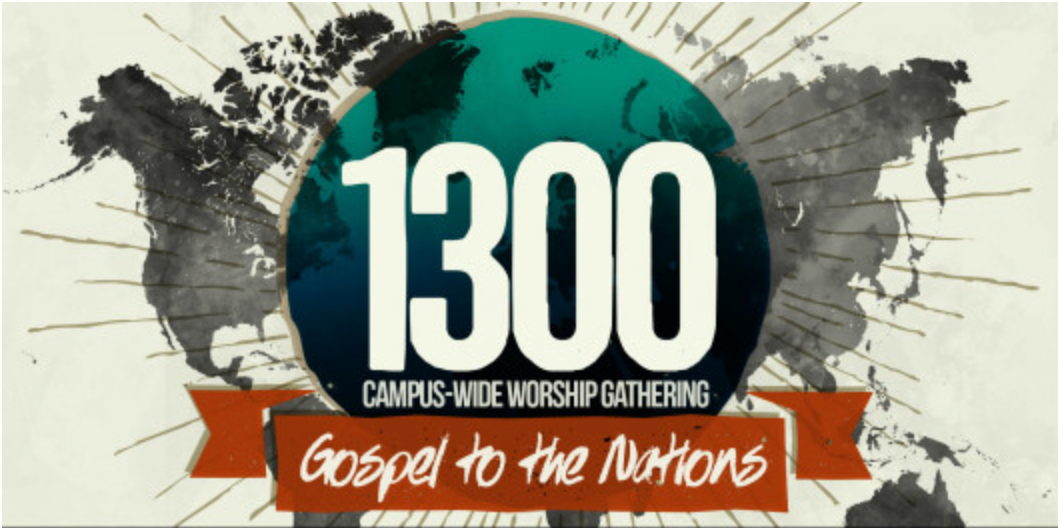
Since some of the space must be shared, the five churches usually meet at different times. About once a year, they join together for worship in what they call the 1300 Service, the name coming from First Baptist’s street address. During the 1300 Service, each congregation participates and leads in some aspect of worship. Following the service, the five churches eat lunch together.
In addition to sharing space and meals, the five churches are seeking to learn from each other.
During a recent panel discussion at First Baptist, Dawood, Kim, Santiago and Santos shared their testimonies and suggestions for how Christians can build relationships with people from around the world.
Food is a universal connector
When asked to relate experiences of feeling welcomed, the four pastors gave a common response—food. For Pastor Dawood, a missionary in Italy shared a meal with him and welcomed him into his home like family.
Dawood explained how inviting someone from another country, culture or ethnicity to one’s home for a meal demonstrates compassion. Entertaining strangers is a biblical mandate, he said, referencing Hebrews 13:2 and the story of Abram’s visitors in Genesis 18. He also encouraged attendees to invite international college students, neighbors and co-workers to their home, letting their guests cook a meal to learn from them.
It’s not about the meal, though, Dawood said. It’s about breaking the ice and getting to know one another. After Jesus’ resurrection, one of the first things he did was to cook a meal for his disciples, he said.
Pastor Kim told about a college church in California that embraced him. The upperclassmen reached out to him, taking him out to eat and paying for his meal. Sharing a meal is so important that his congregation eats lunch together every Sunday.
The importance of family and time
The four pastors acknowledged how important family is in each of their cultures. They agreed with Dawood, who said time and the individual are primary in the West—especially the United States—while people from elsewhere place more value on family groups and being together.
It is not uncommon in some Hispanic cultures for multiple generations to live together in one home, Pastor Santiago said.
Hispanics—and other cultures—have a high regard for the elderly, Santiago noted. “It would never cross my mind to put my parents in a home,” he said. Instead, the family comes together to provide care for elderly family members.
In Korean culture, children do not call adults by their first name—not even their uncles or aunts, Kim said. Use of first names is reserved for those who are equal in status or who are older than those they are addressing, he said.
Basic knowledge and kindness go a long way
When the pastors were asked to describe how they were made to feel unwelcome, another common response emerged—a lack of knowledge that communicated uncaring or devaluation.
“Hispanic” is not all one thing, Santiago said, and Kim echoed by saying Asians also are diverse. Twelve countries from throughout Central and South America and the Caribbean are represented in Santiago’s church. While they all speak Spanish, they have different customs.
With respect to language, Santiago explained that a Spanish word means different things to different Spanish speakers. An innocent word in one country can be a vulgar word in another. Be careful with language, he cautioned.
Kim recounted two particular stories of unwelcome. When people learn he is from Korea, some ask if he is from North Korea. He reminds them that the North Korean government does not allow its citizens to travel; so, he could not be from the North. Sometimes he tells questioners he is from West Korea. Kim encouraged attendees to learn simple geography if they want to connect with people from around the world.
Where an Asian is from is just as important as where an American is from, Kim said. He learned in California and Texas that people from one state or city don’t want to be confused with people from another. The same is true for people from Asia, he said.
While a doctoral student at Baylor, well-meaning students asked if Kim planned to return to Korea when he finished. At that point, Kim had been a naturalized citizen of the United States for 25 years. Realizing the students meant well, he told them he planned to stay in the United States to welcome others from Korea.
Dawood said people assume he is Muslim simply because he is from the Middle East. He encouraged attendees not to assume a Middle Eastern person’s religious affiliation.
In addition, just because a person does not speak English well does not mean that person is unintelligent, Dawood counseled. Not only are many immigrants highly educated professionals, they also frequently speak multiple languages, he said.
Pastor Santos explained how people new to the United States do not always know who they can trust. He encouraged attendees to build relationships of trust with those from other countries. Eating and laughing together is better with people you trust, he said.
Santiago concluded by reminding attendees that every person carries the image of God. “We have the Creator in common,” he said.
About the pastors
Kim was born in South Korea but grew up in South America as a committed Buddhist. While in South America, he met a Korean Baptist missionary and became a Christian and later moved to California. Kim and his family moved to Texas in 2002 so he could finish his theological studies, which included a Ph.D. from Baylor University. From Waco, they moved to the Dallas area so he could teach at Dallas Baptist University.
Forest Community Church started in the Kim’s home in 2015 before relocating to First Baptist Church in Plano. The church is made up of about 70 percent Korean Americans, 20 percent Chinese Americans and “some Cajuns.”
Santos gave up a profitable business in Brazil when he sensed God calling him to the United States in 2017. He came to Dallas Baptist University to pursue a master’s degree in global leadership, bringing his family with him.
Once in Dallas, Santos sensed God calling him to start a church. He was in disbelief until he learned that about 6,000 Brazilians lived in the area. Seeing the need, he started the Brazilian American Baptist Church.
Not long after, Santos learned of another Brazilian church that closed after three years. He became discouraged because the pastor of that church was a good speaker and leader. Then, God started sending people to the Brazilian American Baptist Church after they found the new church on Facebook.
Santiago is a third-generation pastor from Long Island, N.Y. In 2008, God spoke to him in a dream, telling him to plant a Spanish-speaking church in Plano. He resisted God’s call until finally embracing it in 2014.
When he and his wife looked for a house in the Plano area, their realtor encouraged God’s call on him by saying the Hispanic community in Plano needs restoration. From that conversation, they named their new church Casa de Restauración.
Besides being the one Spanish-speaking church among the five churches meeting in the same building, Casa de Restauración also is the only non-Baptist church among them. “We believe we have much more in common than what makes us different, even if the other ministries are Baptist,” Santiago joked.
Dawood fled Baghdad, Iraq, in 1982, spending a few months in Italy on his way to the United States. While a refugee in Rome, he encountered a Christian missionary to Jews and became a Christian himself.
After finishing a degree at Dallas Theological Seminary in 2007, Dawood became the pastor of Arabic Baptist Church of Dallas. He shares his story in The Refugee: A Story of God’s Grace and Hope on One Man’s Road to Refuge.


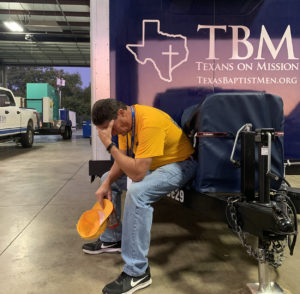
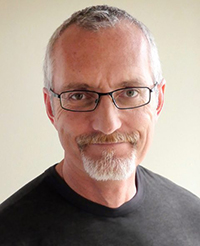

 In addition to bringing back VeggieTales, Vischer also has produced a Bible storybook for children,
In addition to bringing back VeggieTales, Vischer also has produced a Bible storybook for children, 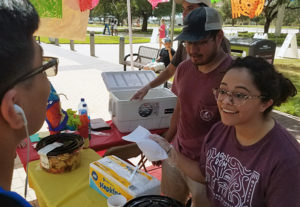




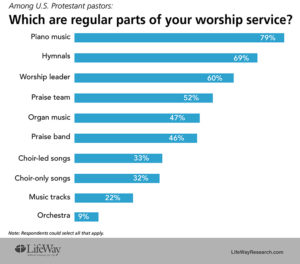 The youngest pastors, those ages 18 to 44, are more likely than the oldest pastors, those 65 and older, to say finding musicians and vocalists is their biggest challenge (24 percent to 16 percent).
The youngest pastors, those ages 18 to 44, are more likely than the oldest pastors, those 65 and older, to say finding musicians and vocalists is their biggest challenge (24 percent to 16 percent).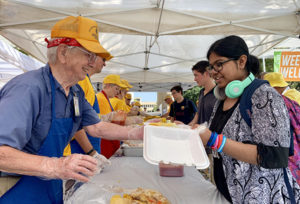
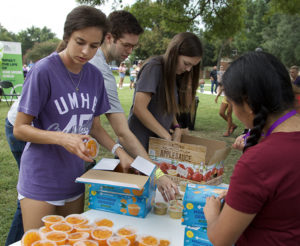
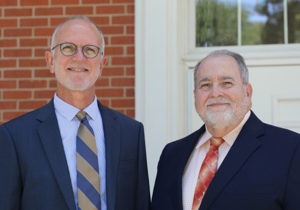
 “My years as a student at Southwestern Seminary were formative for me in so many ways,” Dockery said. “During that time, I came to admire and appreciate the best of the Southwestern tradition and to better understand our Baptist and evangelical heritage.”
“My years as a student at Southwestern Seminary were formative for me in so many ways,” Dockery said. “During that time, I came to admire and appreciate the best of the Southwestern tradition and to better understand our Baptist and evangelical heritage.”

